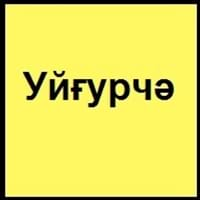Xhosa vs Uyghur
Countries
South Africa
China
National Language
South Africa
China
Second Language
Lesotho, South Africa
Not spoken in any of the countries
Speaking Continents
Africa
Asia
Minority Language
Botswana, Lesotho
Kazakhstan, Uzbekistan
Regulated By
Not Available
Working Committee of Ethnic Language and Writing of Xinjiang Uyghur Autonomous Region
Interesting Facts
- Xhosa has 15 click sounds, borrowed from the khoi-khoi and san languages of the South Africa.
- The same sequence of consonants and vowels can have different meaning when said with different tones, so Xhosa is tonal.
- Uyghur language has large quantity of loan words from Persian, Russian and Chinese.
- Uyghur was originally written with the Orkhon Alphabets.
Similar To
Zulu, Swazi, and Ndebele
Uzbek Language
Derived From
Khoi-Khoi and San Languages
Gokturk Language
Alphabets in
Xhosa-Alphabets.jpg#200
Uyghur-Alphabets.jpg#200
Scripts
Latin
Arabic, Cyrillic, Latin
Writing Direction
Not Available
Left-To-Right, Vertical, Top-To-Bottom
Hello
Molo
Ässalamu läykum.
Thank You
Ndiyabulela
rakhmat
How Are You?
Unjani
Yakshimasiz? / Qandaq ahwalingiz?
Good Night
Ulale kakuhle
Kachlikingz khayrilik bolsun
Good Evening
Ubusuku obuhle
Kachlikingz khayrilik bolsun!
Good Afternoon
Uben' emva kwemini entle
Not Available
Good Morning
Molo
Atiganlikingz khayrilik bolsun!
Sorry
Ndicela uxolo
kachurung
Bye
Uhambe/Usale kakuhle
Khayr khosh
I Love You
Ndiyakuthanda
sizni yahshi kOrman
Excuse Me
Uxolo
Kachurung
Where They Speak
South Africa
China
Where They Speak
South Africa
China
Where They Speak
South Africa
China
Second Language Speakers
Not Available
Native Name
isiXhosa
Уйғур /ئۇيغۇر (ujġgur / uyghur)
Alternative Names
“Cauzuh” (pej.), Isixhosa, Koosa, Xosa
Uighuir, Uighur, Uiguir, Uigur, Uygur, Weiwu’er, Wiga
French Name
xhosa
ouïgour
German Name
Xhosa-Sprache
Uigurisch
Pronunciation
Not Available
[ʊjʁʊrˈtʃɛ], [ʊjˈʁʊr tili]
Ethnicity
amaXhosa, amaBhaca
Uyghur
Language Family
Niger-Congo Family
Turkic Family
Subgroup
Benue-Congo
Not Available
Branch
Bantu
Not Available
Early Forms
No early forms
Karakhanid, Chagatai, Eastern Turki
Standard Forms
isiXhosa
Uyghur
Language Position
Not Available
Signed Forms
Signed Xhosa
Not Available
Scope
Individual
Not Available
ISO 639 6
Not Available
Not Available
Glottocode
xhos1239
uigh1240
Linguasphere
99-AUT-fa
No data Available
Language Type
Living
Not Available
Language Linguistic Typology
Subject-Verb-Object
Not Available
Language Morphological Typology
Not Available
Not Available
Xhosa and Uyghur Language History
Comparison of Xhosa vs Uyghur language history gives us differences between origin of Xhosa and Uyghur language. History of Xhosa language states that this language originated in 16th Century whereas history of Uyghur language states that this language originated in 11. Family of the language also forms a part of history of that language. More on language families of these languages can be found out on Xhosa and Uyghur Language History.
Xhosa and Uyghur Greetings
People around the world use different languages to interact with each other. Even if we cannot communicate fluently in any language, it will always be beneficial to know about some of the common greetings or phrases from that language. This is where Xhosa and Uyghur greetings helps you to understand basic phrases in Xhosa and Uyghur language. Xhosa word for "Hello" is Molo or Uyghur word for "Thank You" is rakhmat. Find more of such common Xhosa Greetings and Uyghur Greetings. These greetings will help you to be more confident when conversing with natives that speak these languages.
Xhosa vs Uyghur Difficulty
The Xhosa vs Uyghur difficulty level basically depends on the number of Xhosa Alphabets and Uyghur Alphabets. Also the number of vowels and consonants in the language plays an important role in deciding the difficulty level of that language. The important points to be considered when we compare Xhosa and Uyghur are the origin, speaking countries, language family, different greetings, speaking population of these languages. Want to know in Xhosa and Uyghur, which language is harder to learn? Time required to learn Xhosa is 44 weeks while to learn Uyghur time required is 44 weeks.





